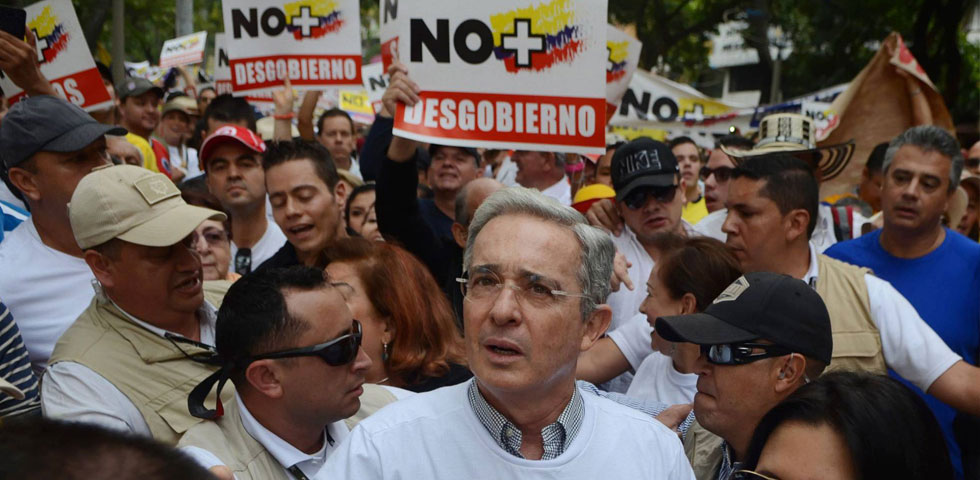Former President Alvaro Uribe on Monday agreed his party to take part in a government commission on a peace deal with the FARC after winning a referendum that sank a pact he refused to cooperate with for years.
Uribe led the ‘No’ campaign’s opposition to the peace deal, effectively sinking the pact and stopping a delicate and ongoing peace process in its tracks after years of negotiations he categorically rejected.
Colombia rejects peace deal with FARC rebels in historic photo-finish referendum
Following the 50.2 / 49.8 defeat, President Juan Manuel Santos, whose administration had negotiated the agreement, summoned all political parties, “particularly” that of Uribe, to an emergency meeting on Monday.
But no representative of Uribe’s Democratic Center (CD) party showed up at the meeting. The two rival dynasty politicians haven’t talked in years and Uribe — once the president’s superior — takes no orders from Santos, especially not after an electoral upset.
Representatives of all other parties did attend the meeting and said afterwards they fully supported the president, informing Uribe that Santos sought “to form a broad and inclusive commission to open a national dialogue with all sectors of the No campaign.”
Uribe agreed.
“In order to identify the adequate steps towards such national pact,” Uribe’s party said it would “meet with the delegates assigned by the national government,” the ex-president’s party said in a statement.
Uribe peace delegation
Humberto de la Calle (chief negotiator with the FARC)
Luis Carlos Villegas (Defense minister)
Maria Angela Holguin (Foreign Minister)
Santos then assigned the top members of the government commission that had negotiated peace with the FARC to now negotiate Uribe’s cooperation with the process.
FARC leader Rodrigo Londoño, a.k.a. “Timochenko,” said to remain dedicated to peace and wait what happens while maintaining a unilateral ceasefire.
Uribe and his supporters strongly object to the provisions on transitional justice, which would allow convicted war criminals to evade prison and even enter politics.
While the judicial benefits and penalties apply to all war criminals, including 24,4000 state officials convicted or suspected of war crimes, Uribe claims the justice system “equalizes the military with terrorists.”
Paradoxically, Uribe is facing numerous allegations of war-related crimes, including the executing of thousands of civilians to inflate military success figures. While the agreed Truth Commission could mean his political death, the transitional justice tribunal could keep him out of prison.
Uribe’s fiercely anti-Communist party also strongly object to allowing the political participation of the FARC’s leadership, a possible, but unlikely scenario because of the hundreds of war crime allegations pending against the guerrilla chiefs.
The thought of a the leader of a designated terrorist group in Congress is offensive for many in Colombia where resentment against the guerrillas is widespread and trust in either Santos or the justice system is low.
Uribe’s political and economic allies also fear criminal charges, particularly over the civilian killings, and the ongoing ties between political dynasties and paramilitary groups.


